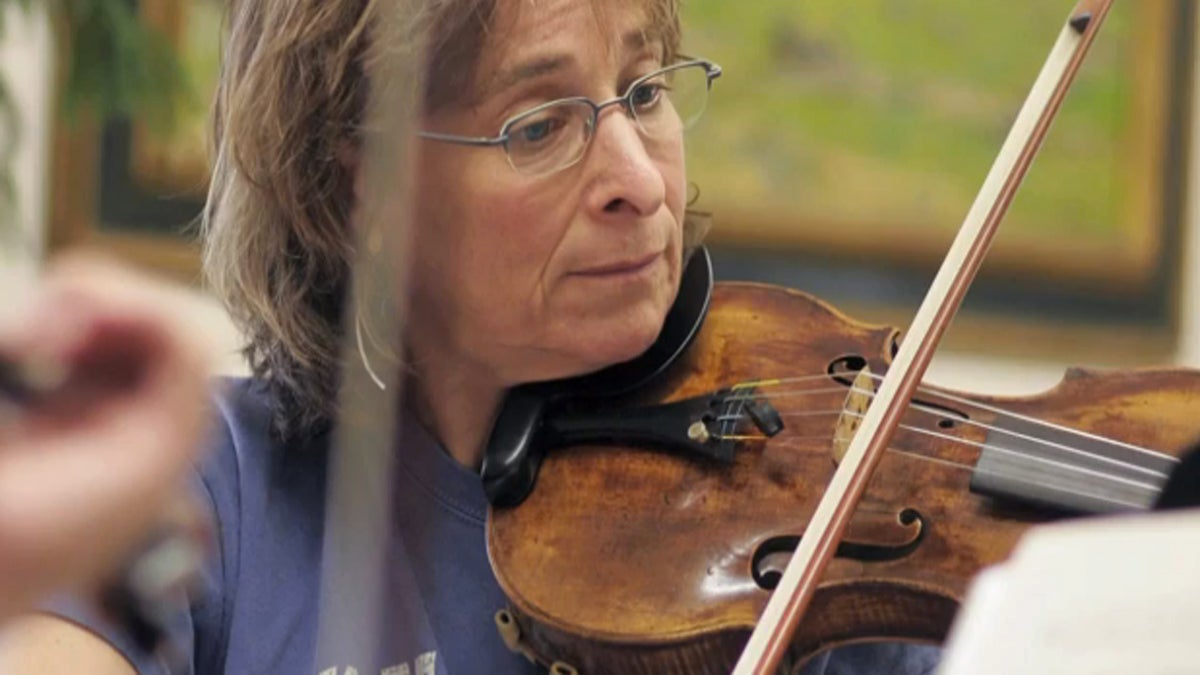The inspiration behind Cynthia Baum-Baicker’s lifelong career in behavioral health
Listen
Cynthia Baum-Baicker says her ear for music
When Philadelphia-based clinical psychologist Cynthia Baum-Baicker runs a therapy session, she listens with the ears of a musician and sometimes, she says, the pauses, the tempo and tone of a voice can tell her more than the words themselves. It gives her an insight of what’s going on in people’s internal world.
Music is so important in her life that had she not discovered Freud’s writings in high school and done some volunteer work at St. Louis State Hospital with people with mental problems, the violin would have guided her career choice.
“But if you want to know the truth,” she says, “It goes back to my maternal grandmother who suffered from a severe depressive disorder, and eventually Alzheimer’s, and I watched how it affected not only her but our entire family.”
All that lead her to a career path dedicated to helping “the most vulnerable among us.” Convinced that she needed to understand better the role illness and mental disorders play in family life, she embarked in a life-long path of study and practice in behavioral health.
Baum-Baicker’s knowledge of the unresolved issues behind providing comprehensive, accessible and fair mental health services has driven her to concentrate on building effective mental health systems.For her, behavioral health is synonymous with mental health because it has to do with our overall system of behavior, feelings , and thoughts. But as it takes on a more important place in society, Baum-Baicker says she arrived at the conclusion that “today’s mental health reality is a mess.”
She sees a number of flaws that need urgent attention.
“I see what is called ‘diagnostic inflation’, in other words, an increase in identified conditions as listed in the DSM (The Diagnostic and Statistical Manual or mental Disorders”) from 106 to 300 diagnosis today.”
Baum- Beicker also worries about what the bioethicists describe as “disease mongering” which means that “the pharmaceutical industry is taking portions of normative behavioral health and pathologizing it, so we have become somewhat of a drug dependent nation.”
She’s careful to note that drugs do have their useful place but “there’s a danger in pathologizing, for instance, things like “normal shyness into social phobia, so what used to be rare is now quite common.”
Yet, there’s a scarcity of mental hospitals, less hospital stay time, less access to care ” so that doctors are weary of treating the sickest among us because there are fewer hospitals. Managed care has come in so that the amount of time we can spend with patients has been diminished” and she emphatically observes that “we’ve locked out families who are in the front lines, who know what’s going on because of a misunderstanding of the “HIPAA” privacy laws”.
In the middle of all that, she says, it’s often easy to forget that “as clinicians, our job really is to listen, and to listen in as full and as open way as we can, to see with our eyes, to have our hearts open, our ears open” and that takes time.
Her approach?
“I’m engaging in conversations, I want us to bring the human back to human problems, even in psychotherapy now we are taking away listening and the human aspect and we are making it formulaic,” she said. “So I want to bring us back to thinking about thinking, and feeling and accepting what’s unique and human in each patient that we see and helping each person based on what his or her needs are.”
WHYY is your source for fact-based, in-depth journalism and information. As a nonprofit organization, we rely on financial support from readers like you. Please give today.



